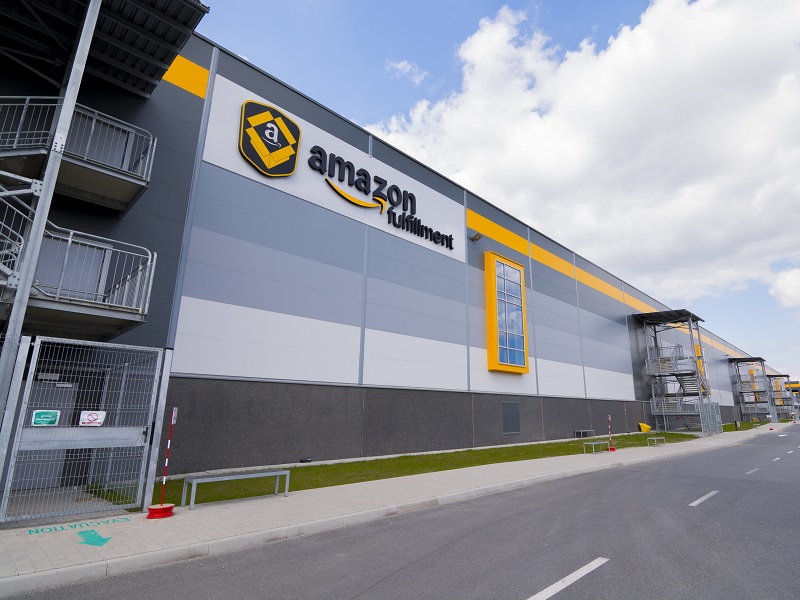

Amazon workers voted against forming a union at a warehouse in Alabama, handing the online retail giant a decisive victory and cutting off a path labour activists had hoped would lead to similar efforts throughout the company and beyond.
After months of aggressive campaigning from both sides, 1,798 warehouse workers ultimately rejected the union, while 738 voted in favour of it, according to the National Labor Relations Board, which is overseeing the process. Of the 3,117 votes cast, 76 were voided and 505 were contested by either Amazon or the Retail, Wholesale and Department Store Union, which led the organizing efforts in Bessemer, Ala. But the labour board said the contested votes weren’t enough to sway the outcome.
Read: Amazon vote could ‘light a fuse’ for more union pushes
The union said it would file an objection with the labour board, charging Amazon with illegally interfering with the union vote. It’ll seek a hearing with the board to determine if the results “should be set aside because conduct by the employer created an atmosphere of confusion, coercion and/or fear of reprisals.” The union accused the company of spreading disinformation about the unionization effort at meetings workers were required to attend.
During the voting process, workers were flooded with messages from Amazon and the union. Amazon hung anti-union signs throughout the warehouse, including inside bathroom stalls. It held mandatory meetings to convince workers why the union was a bad idea and also argued that it already offered more than twice the minimum wage in Alabama plus benefits without paying union dues.
“Amazon has left no stone unturned in its efforts to gaslight its own employees. We won’t let Amazon’s lies, deception and illegal activities go unchallenged,” said Stuart Appelbaum, the president of the RWDSU.
In a statement, the company said it didn’t intimidate employees. “Our employees heard far more anti-Amazon messages from the union, policymakers and media outlets than they heard from us,” it said. “And Amazon didn’t win — our employees made the choice to vote against joining a union.”
Read: Amazon to cut bonuses, stock benefits as it raises wages
The union push was the biggest in Amazon’s 26-year history and only the second time that an organizing effort from within the company had come to a vote. But Bessemer was always viewed as a long shot since it pitted the country’s second-largest employer against nearly 6,000 workers in a state where laws typically don’t favour unions.
That the labour movement in Bessemer even got this far was unexpected. Amazon has an undefeated record of snuffing out union efforts before they can spread. And at a time when the economy is still trying to recover and companies have been eliminating jobs, it’s one of the few places still hiring during the coronavirus pandemic, adding 500,000 workers last year alone.
Read: Ontario Amazon warehouse being investigated for labour violations following coronavirus outbreak
But the pandemic also revealed inequities in the workforce, with many having to report to their jobs even while the coronavirus was raging, leading to concerns over health and safety. The organizing efforts in Bessemer also coincided with protests happening throughout the country after the police killing of George Floyd, raising awareness around racial injustice and further fuelling frustration over how workers, of which more than 80 per cent are Black, at the warehouse are being treated, with 10-hour days of packing and loading boxes and only two 30-minute breaks.
The National Retail Federation, the largest retail group in the U.S., struck a tone of relief after the vote. “The process works and employees can make an informed decision despite the enormous scrutiny under which this campaign was conducted,” said David French, a spokesman for the federation. “Union representation is a choice for workers, but many clearly prefer opportunities in a competitive marketplace that provides strong wages and benefits over the anonymity of a collective bargaining agreement.”
Unions have lost ground in the U.S. for decades since their peak in the decades following the Second World War. In 1970, almost a third of the U.S. workforce belonged to a union. In 2020, that figure was 10.8 per cent, according to the U.S. Bureau of Labor Statistics. Private sector workers now account for less than half of the 14.3 million union members across the country.
Read: Uber, Lyft spend big, win in California vote about drivers, benefits
Despite this latest defeat, labour experts and union leaders believe the organizing efforts in Bessemer could nonetheless inspire other Amazon workers to want to unionize at the company’s hundreds of facilities across the country. And it could spread beyond the company, spurring action at Walmart Inc., the largest employer in the U.S., and other big retailers, according to Benjamin Sachs, a labour law professor at Harvard Law School.
